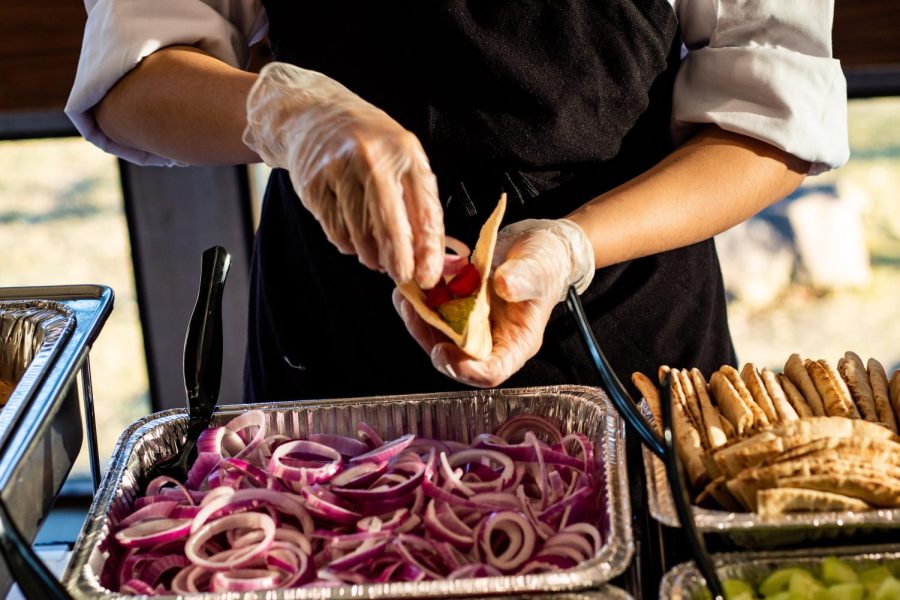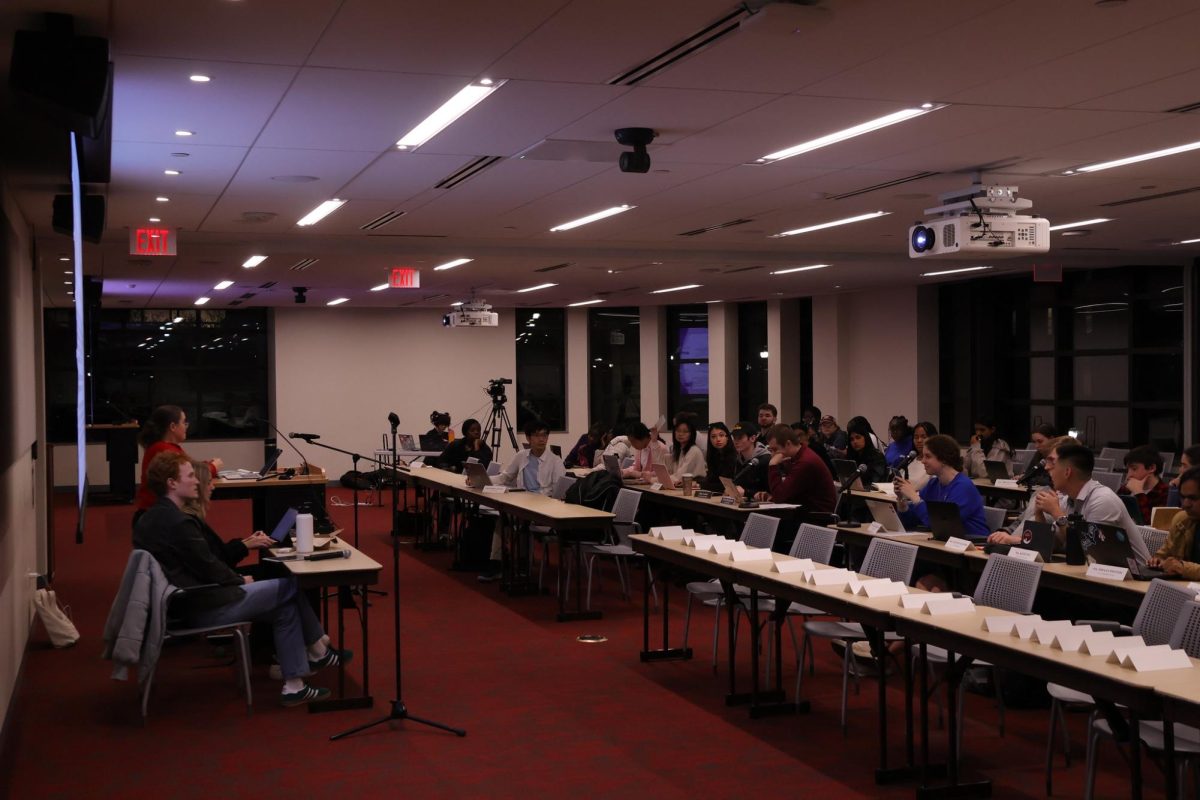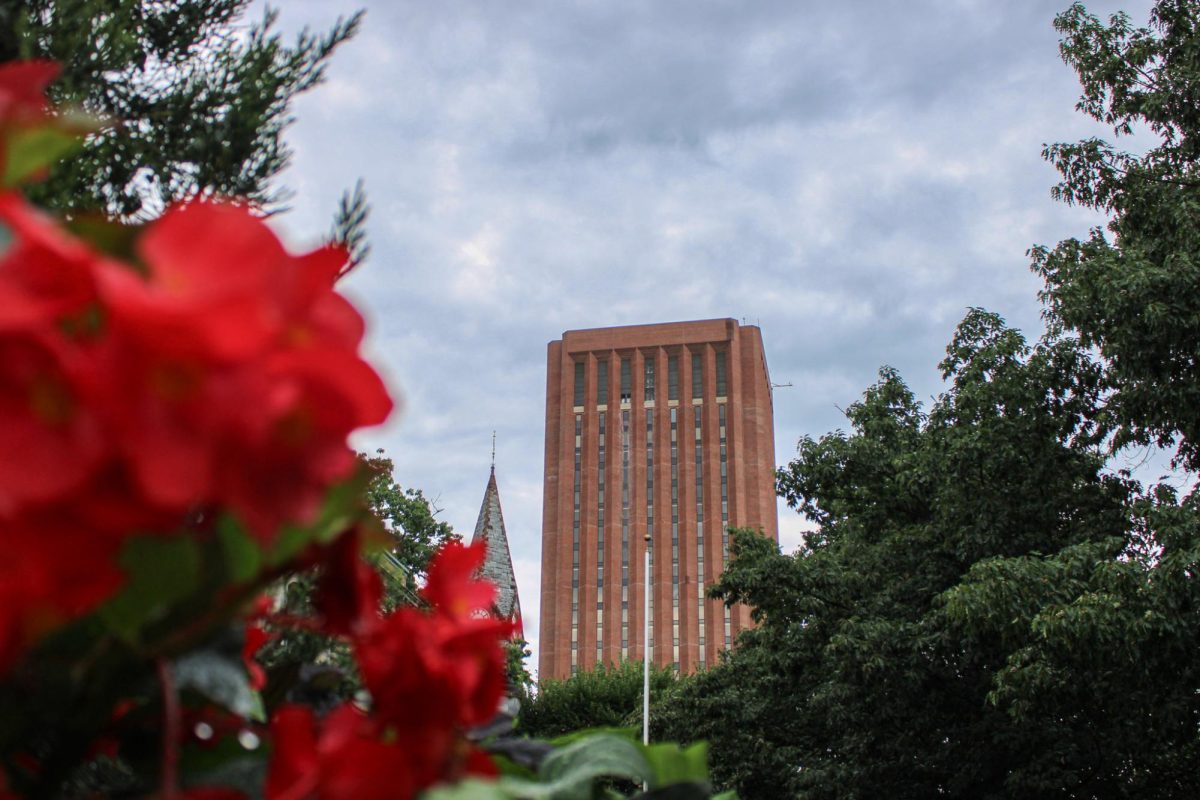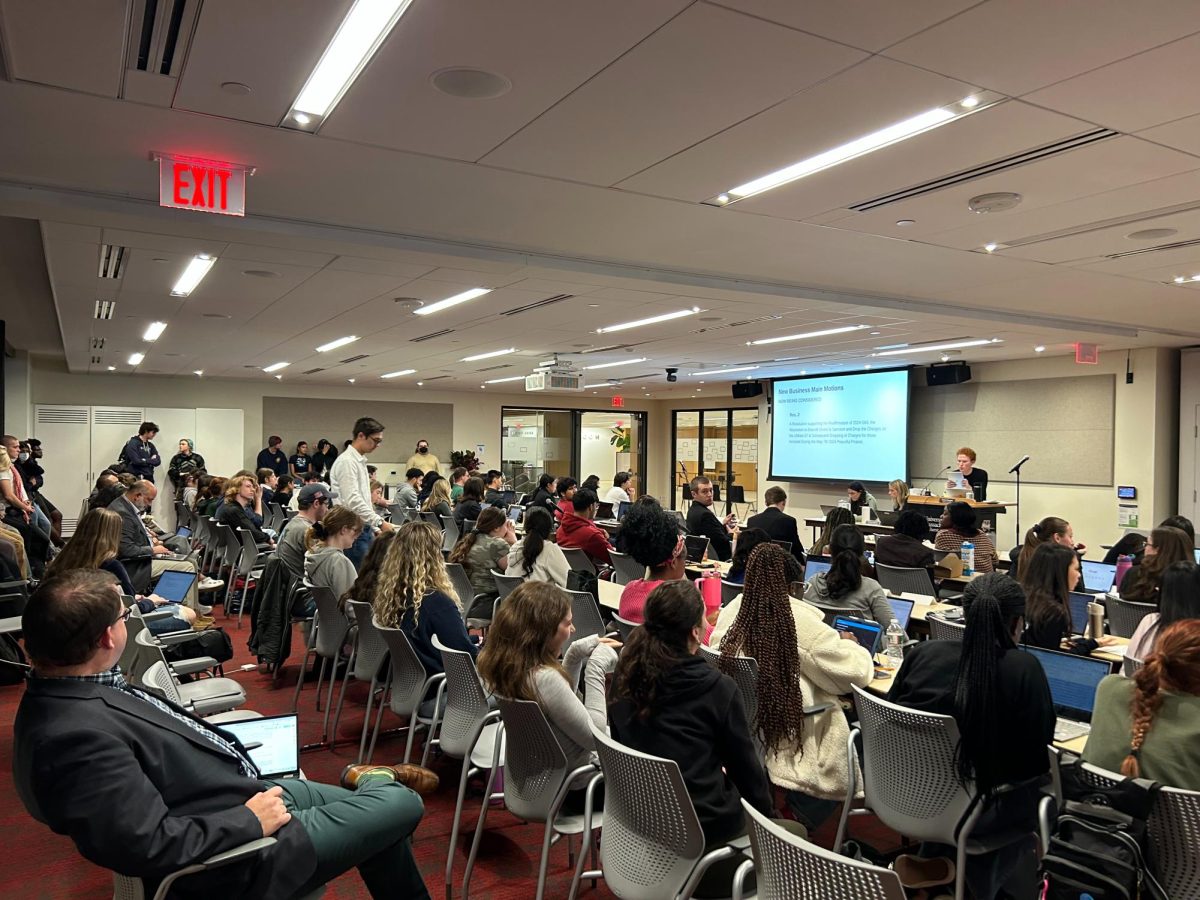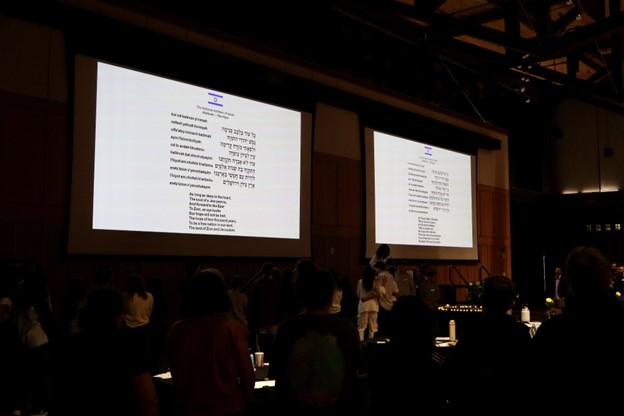After implementing a food waste diversion program at residential area North Apartment D in 2015, the University of Massachusetts sustainability project has since expanded to other residence halls and dining commons.
According to Sustainable UMass, the Univerity diverts 1,500 tons of food waste each year, making it the largest recycling program on the flagship campus.
Access to food waste bins on campus is how the program became successful. Across the four dining halls, cafes and residence halls, there are many opportunities for students to act more sustainably. There are three bins that help the recycling stream: food waste, recycling and trash.
Food waste refers to good quality food that is thrown away instead of eaten.
The food waste bins have specific requirements on what is considered food waste, including food scraps such as meat, vegetables, bones, grains, fruits and more.
Regular recycling bins on campus allow for bottles, cans and paper, without needing to separate them. Landfill trash bins accept everything that is not required in the food waste and recycling bins.
The bins are now located all over campus, inclduing inside the four dining halls: Franklin, Hampshire, Worcester and Berkshire, as well as cafes and other dining establishments like Blue Wall.
However, the bins aren’t in every residential building. There are food waste bins in North Apartments, Commonwealth Honors College and Orchard Hill residence halls. In residence halls that do not have access to food waste bins, there are signs that detail how to separate trash, food waste and recycling.
“No Food Waste bin in your building? Use one in a dining location or use the Landfill bin,” the signs read.
The Office of Waste Management handles the transportation and collection of food waste from the dining and residential areas. Currently, the food waste collected on campus gets sent to Martin’s Farm in Greenfield.
“The Office of Waste Management supplies 96-gallon Rubbermaid toters to the dining commons.” Associate Director of Custodial and Ground Services Pamela Monn said. “We have a collection crew that goes out daily to pick up those toters and bring empty ones so they can fill them. That is then transferred to a transfer trailer and hauled right now to two local vendors in the area.”
Since the program’s expansion from 2015 forward, the Office of Waste Management has faced challenges with its composting system.
“The biggest challenge is contamination,” Monn said. “It is a concern and an issue that we’ve been wrestling with. And that’s one of the biggest areas we’re working on. Do we look at a potentially different company who can handle the contaminants, who can handle what we bring them? Or do we keep working with a local farm, a local vendor, where the contaminants, like the compostable forks and things cause him problems on his farm?”
A contaminant is anything that pollutes a waste stream, which can simply be general trash put into food waste bins. This contamination can lead to the whole recycling stream being rerouted to a landfill.
“I do think that the buffet style dining halls contribute to waste because I think that people take more than they can eat,” junior communication disorders major Jill Pourmand said.
The University encourages students to think about how much food they are taking during their meals, promoting mindfulness about zero waste.
The zero waste steps taken by UMass are just the beginning in changing the environment of the campus into a more sustainable one.
“I think there are always improvements we can do,” Monn said.
Sydney Warren can be reached at [email protected].

